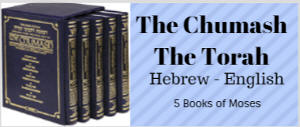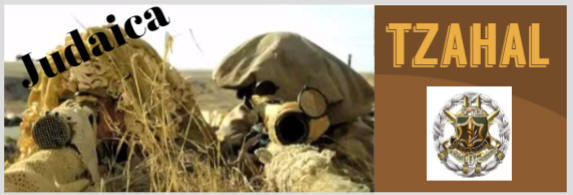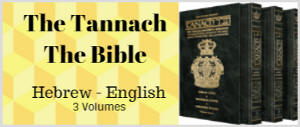|
By
Rabbi Pinchas Frankel
Parashas Vaera - 5778 - The Parashah of Faithfulness
At the
beginning of Parashas Vaera,
HaShem informs Moshe that the
time has come to fulfill His
"Shavuah," His Oath to the
"Avos," to Avraham, Yitzchok and
Yaakov, regarding the Redemption
of their descendants, the People
of Israel, from slavery in
Egypt, and the Oath to bequeath
to their descendants the Land of
Canaan.
When
HaShem created the human being,
He breathed within him a "Nefesh
Chayah," a Living Soul, which
Onkelos translates as a Speaking
Being. A person is obligated to
speak "Emes," the Truth, which
is the Seal of HaShem, and the
model for His creations.
Otherwise, they desecrate
HaShem's Holy Name. "Everything
which comes out of his mouth, he
shall fulfill." (BaMidbar 30:3)
The
verbal instrument by which the
Creator or His most worthy
creation, the human being,
confirms the truthfulness of
His/his words, is called the
"Shevuah," the Oath. The Rambam
in Mishneh Torah Hilchos Shavuos
describes the Laws of Oaths
affecting the human being ,
based on the Talmud:
There
are four categories of
"Shavuos:"
1.
"Shevuas Bituy," an Oath
regarding the past or the
future; that the Oath-taker did
or did not do something, e.g.
eating or throwing a stone into
the sea, or that he will do or
will not do something, such as
those items mentioned above. If
the oath was false, this
scenario is covered by the verse
"Do not swear in My Name
falsely" (VaYikra 19:12), and
the penalty for purposeful lying
is that he suffers "Makos,"
lashes; for accidental
violation, he brings a "Korban
Oleh VeYored." The expression
"in My Name" alludes to the fact
that an oath must be made in the
Name of HaShem.
2.
"Shevuas Shav," a Meaningless
Oath, also of four types: When
one swears to a statement that
is clearly not true, e.g. that a
man is a woman or vice versa, or
When the oath affirms a patently
obvious truth, e.g. that a man
is a man or a stone is a stone,
or When someone swears to cancel
a Commandment, e.g. he swears
that wearing Tefillin is not a
sacred Command, or When the oath
is that the taker of the oath
will perform an action which no
human being has the capability
of performing, such as not
sleeping for 72 hours or not
tasting a morsel of food for
seven consecutive days. Someone
who utters such an oath,
violates "Do not swear an oath
which desecrates the Name of
your G-d for no reason." If he
did so on purpose, he is
punished with "Makos;" if by
accident, he is not punished.
3.
"Shevuas HaPikadon," an Oath
regarding a Bailment. If a
person is in possession of money
belonging to his fellow, and
that fellow demands its
restoration, and he swears an
oath denying that it is in his
possession, he has violated, "Do
not lie to your fellow," this is
a warning against swearing an
oath denying falsely that one is
in possession of someone else's
money. And the punishment is
payment of the basic amount plus
a fifth. And the perpetrator
must sacrifice an "Asham Vadai"
whether the sin was on purpose
or accidental.
4.
"Shevuas HaEdus," the Oath
Regarding Testimony. The case is
as follows: Witnesses who knew
testimony in a monetary case and
the litigant requiring their
testimony asked them to testify
in his behalf, and they denied
under oath having such
knowledge. They are required to
bring a "Korban Oleh VeYored"
for violation of the Command,
"If a person will sin: If he
accepted a demand for an oath,
and he is a witness - either he
saw or he knew - if he does not
testify, he shall bear his
iniquity." (VaYikra 5:1)
Recall
that HaShem had declared His
culpability for His Oaths at the
beginning of the Parashah. Now
if His culpability follows
approximately the same model as
the human model, with the
understanding that the concept
of punishments, such as
"Makos,"
has to be removed from the
discussion, as well as any
reference to
"past" and
"future," for HaShem is outside
the realm of Time, nevertheless,
the concept of
"Shevuas Bituy"
Oath of Expression, or Promise,
may apply to Him and His
Creations, with an elongated
standard of time. Thus, the
Promise of Redemption from
slavery in Mitzrayim was 210
years, and, remembering that
1000 years is as the
"blink of
an eye" to HaShem, and that the
State of Israel has made
miraculous strides in recent
years, the Promise of
"Moshiach"
and the Third
"Bais HaMikdash"
in about 2,000 years, is well
within the bounds of reason.
L'Illuy
Nishmas beni, Aharon Baruch
Mordechai ben Pinchas Menachem
|








